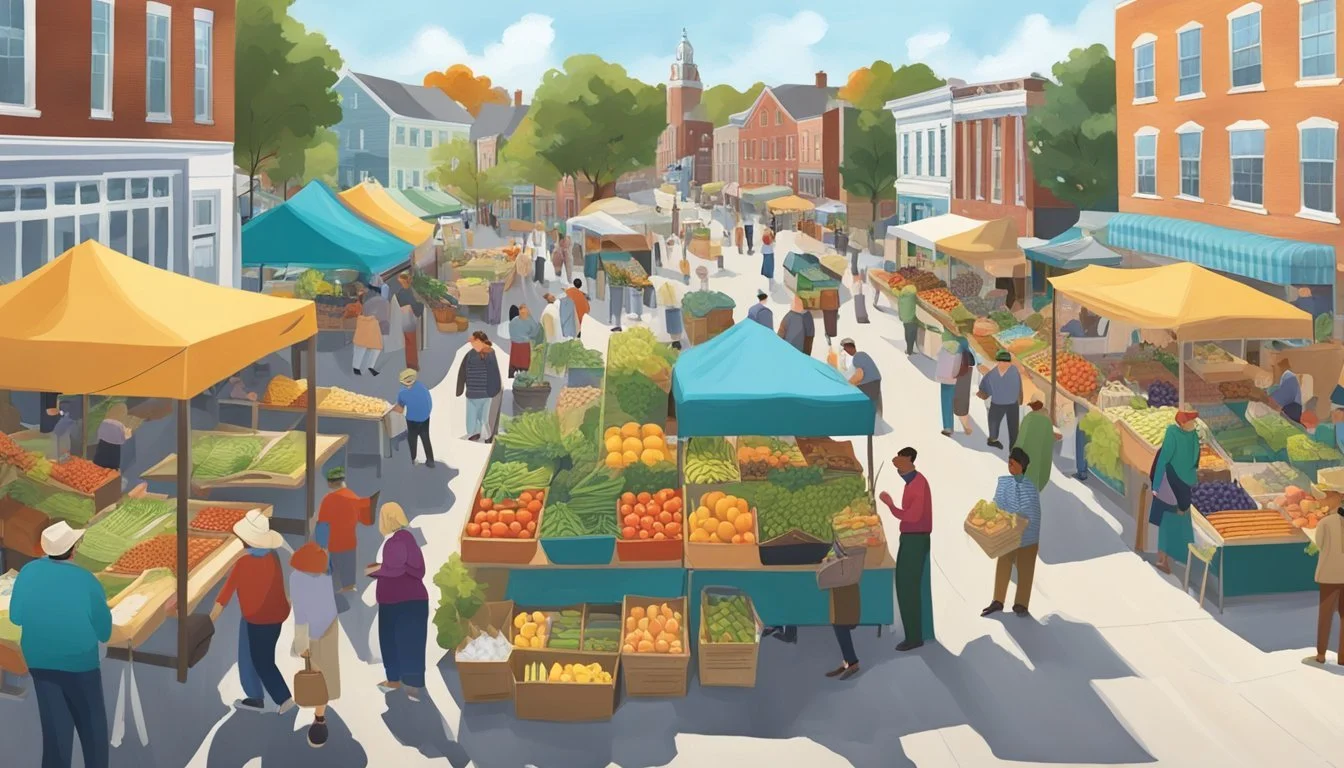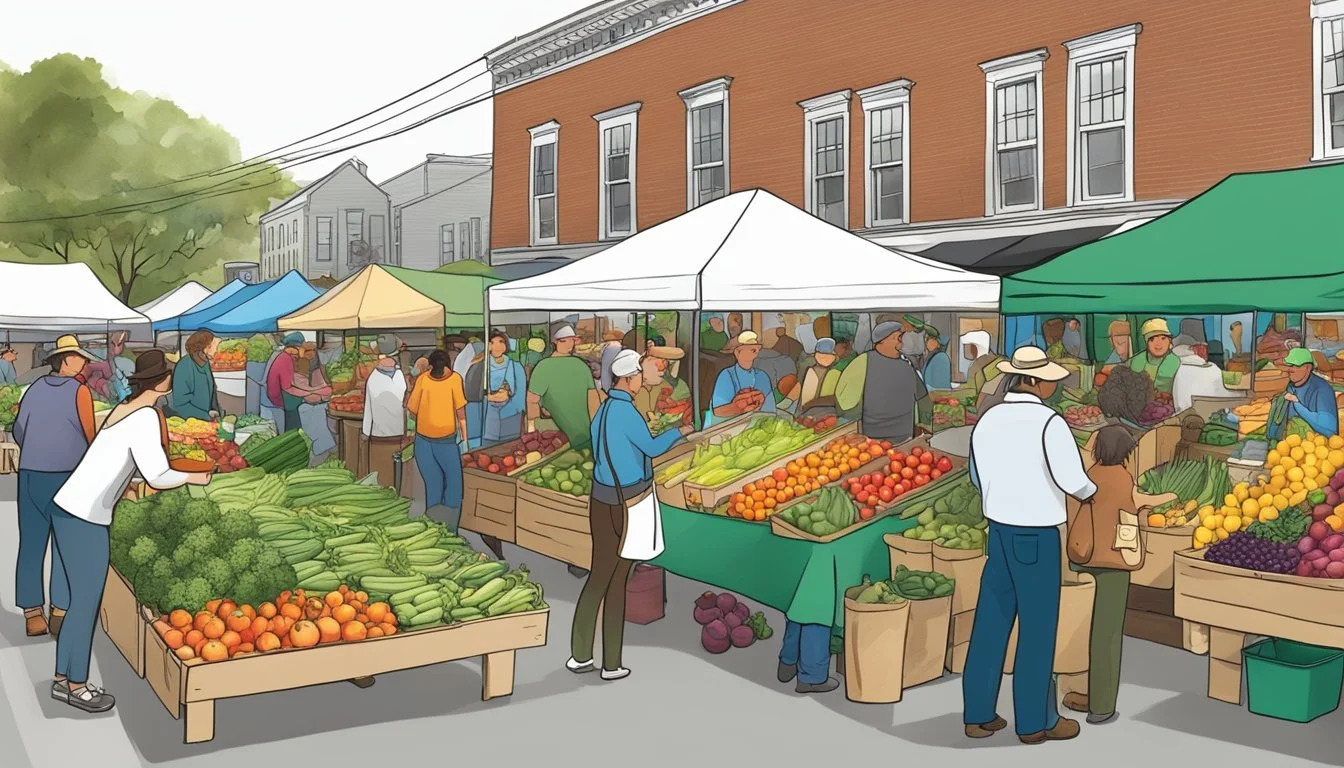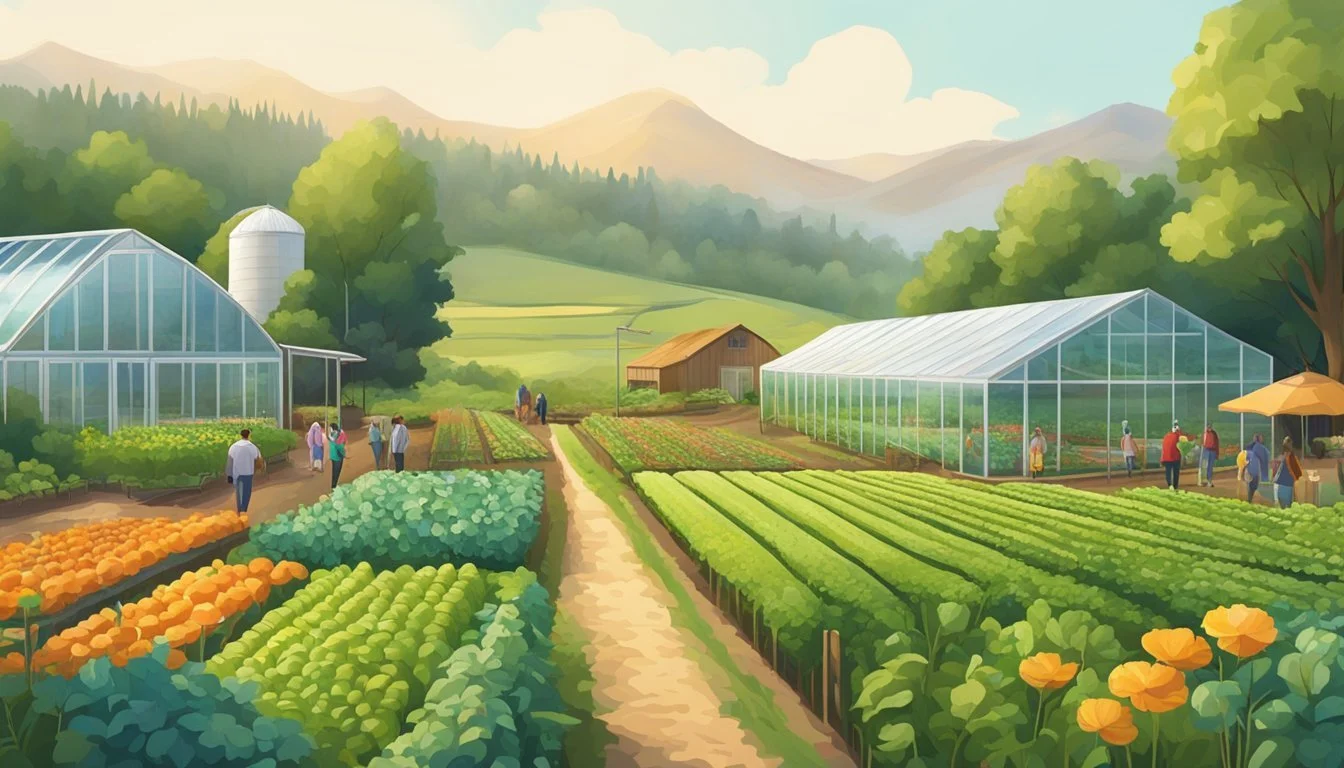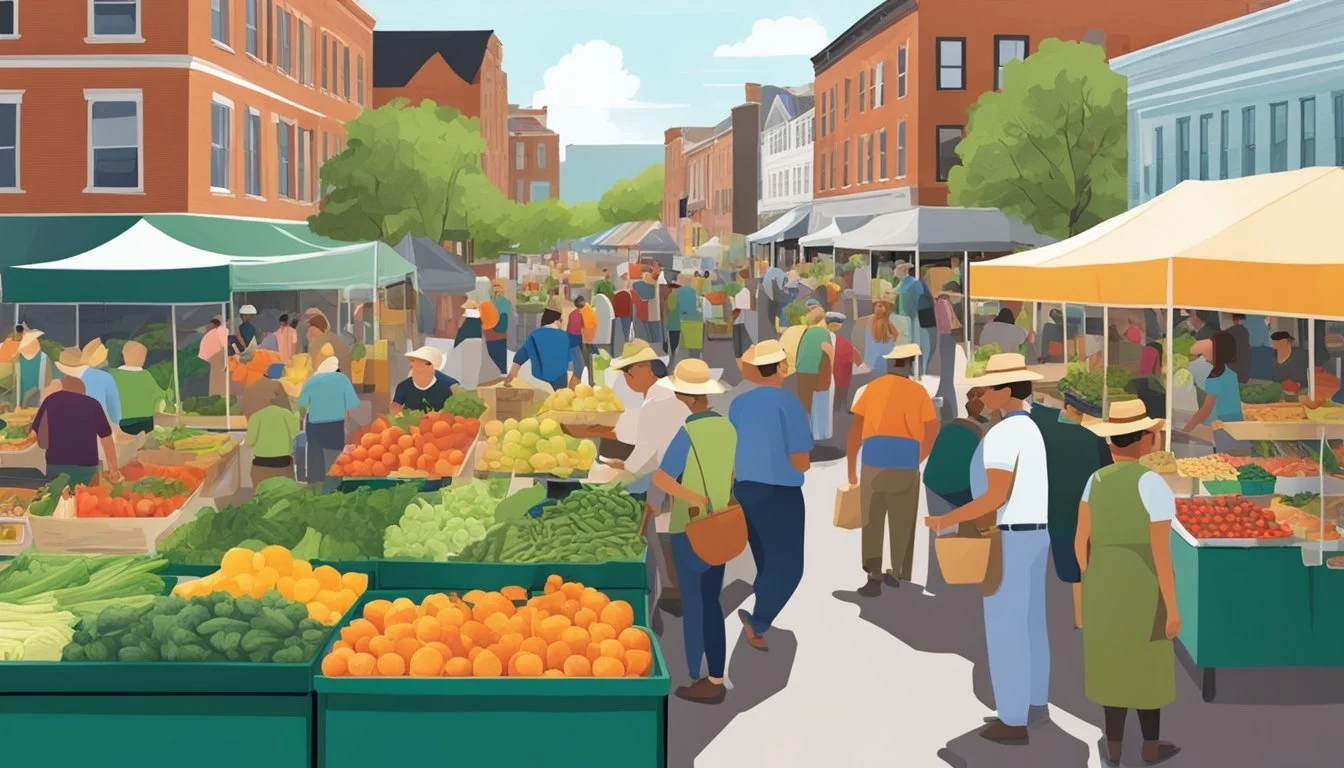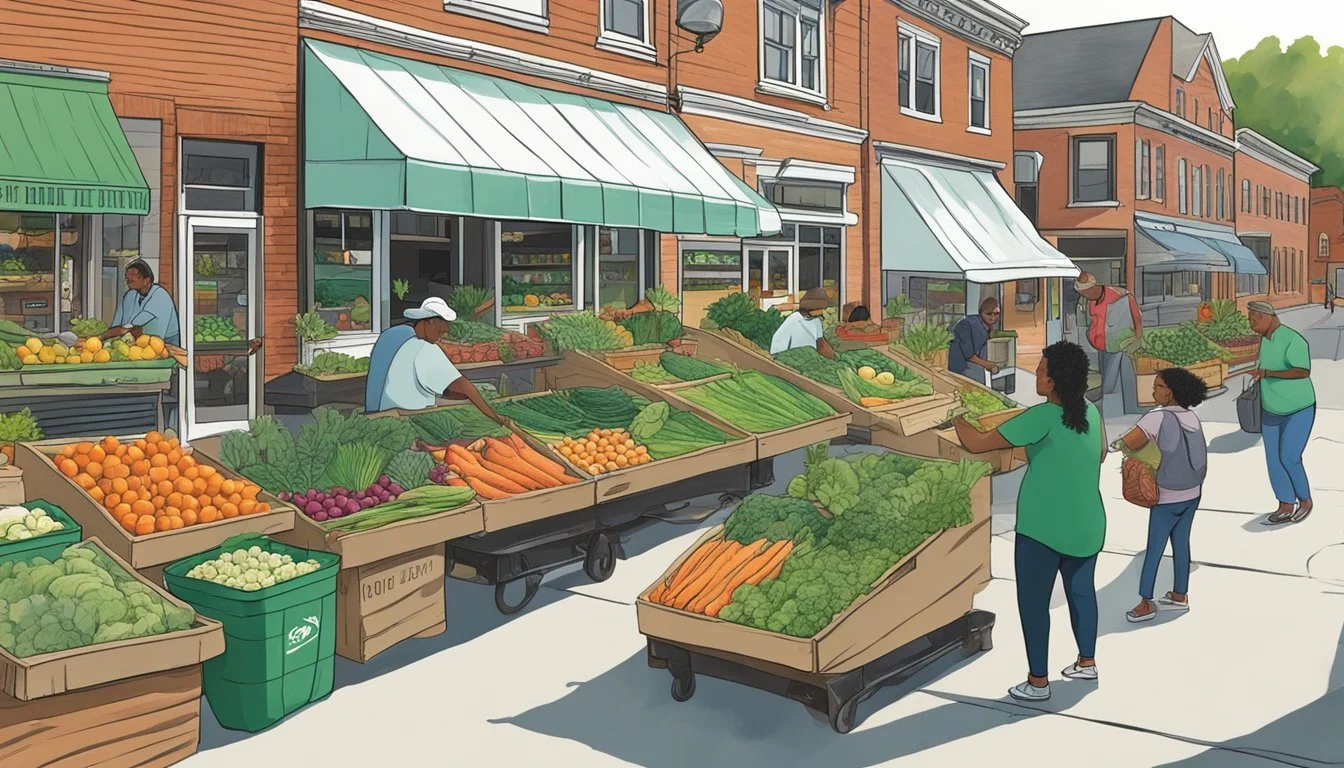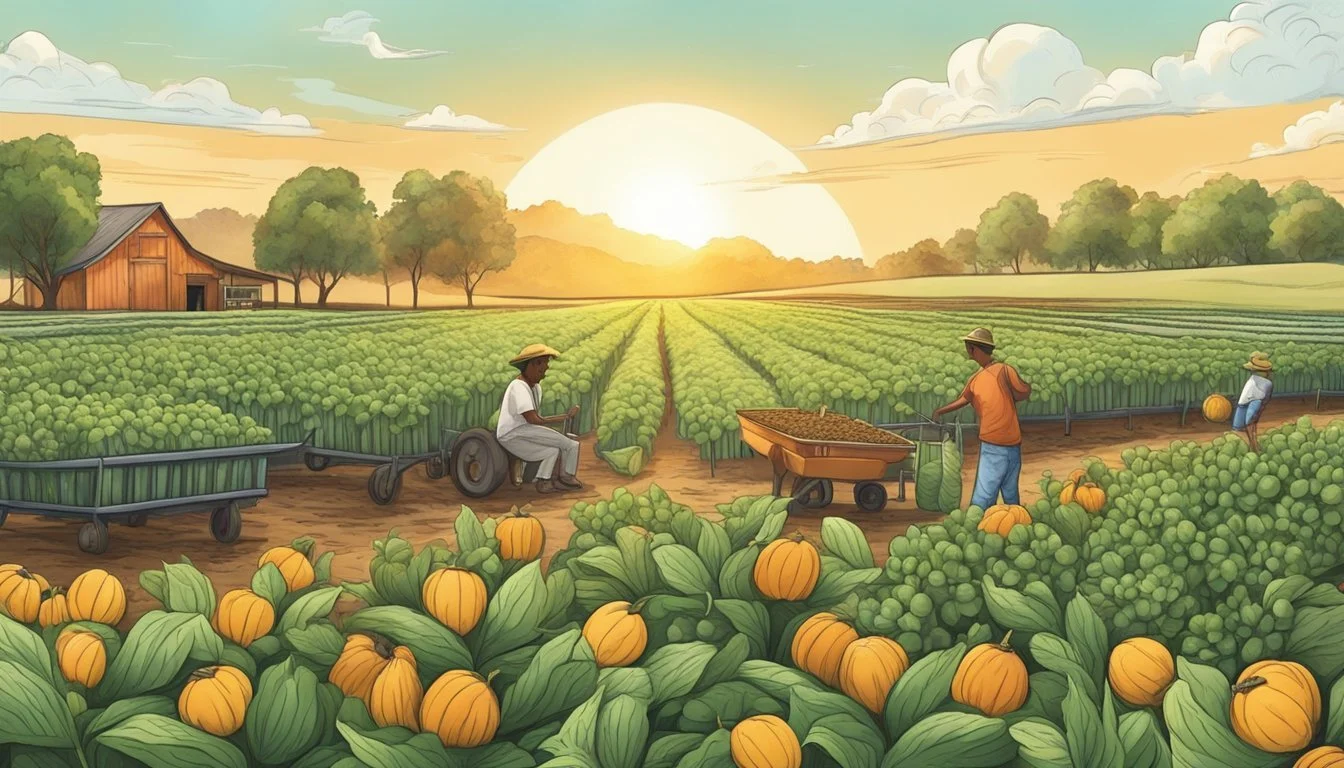Community Supported Agriculture (CSA) in New Bedford, MA
Harnessing Local Food Systems
Community Supported Agriculture, commonly referred to as CSA, is a model of farming and food distribution that has taken root in New Bedford, Massachusetts, among other locations. This system allows consumers to purchase a share of a farm’s harvest in advance, fostering a partnership between farmers and community members. Those who join a CSA are investing in local agriculture and receive a portion of the farm’s produce throughout the growing season, often in the form of a weekly basket of assorted fresh food.
In New Bedford and the surrounding region, CSA programs vary, offering a diverse range of products beyond just vegetables, including fruits, flowers, eggs, and sometimes even pasture-raised poultry. Farms like Hilltop Farm in Westport appeal to subscribers by providing traditional and heirloom vegetables and Ameraucana chicken eggs. This diversity not only enriches the local cuisine but also ensures the economic viability of the farming operations.
The CSA model is designed to mitigate some of the inherent risks of farming. By paying for produce upfront, community members give farmers a predictable income and the necessary funds to manage their operations. As a result, the model creates a symbiotic relationship that supports sustainable agricultural practices and secures fresh, locally-grown food for the community.
Understanding Community Supported Agriculture (CSA)
Community Supported Agriculture represents a partnership between farmers and community members, where individuals purchase shares of a farm's expected harvest, investing in both sustainable agriculture and local economies.
History of CSA
Community Supported Agriculture has its roots in the early cooperative movements in Europe and Japan in the 1960s, reflecting a tradition of shared agricultural responsibility. While the concept spread to the United States in the 1980s, CSA has become increasingly popular as a sustainable model, preserving both traditional farming practices and fostering close-knit community bonds.
CSA Model Explained
Under the CSA model, individuals or families become members by purchasing a "share" of a farm's production. Shares often involve upfront payments which help cover the cost of the farm's operation and in return, members receive regular distributions of the farm's bounty throughout the growing season. The traditional CSA structure includes:
Prepayment: Members pay for their share before the harvest season.
Regular Distributions: Weekly or bi-weekly allotments of farm products.
Shared Risk: Members and farmers share the risks of farming, like poor harvests due to weather.
Benefits of Joining a CSA
Joining a CSA comes with several benefits to both members and local farmers:
Fresh, Seasonal Produce: Access to a variety of fresh and often organic produce throughout the season.
Support for Local Farmers: Directly contributing to the financial stability and success of local farms.
Environmentally Friendly: Promoting sustainable agricultural practices that are kinder to the environment.
Community Engagement: Fostering a sense of community and connection to the food source.
Members not only enjoy fresh food but also participate in a tradition that supports local economies and sustainable agriculture.
CSA Farms in New Bedford, MA
New Bedford, MA hosts a variety of Community Supported Agriculture (CSA) farms contributing to sustainable agriculture and providing residents with fresh, local produce. These farms exemplify a commitment to environmental stewardship and community engagement, offering a range of products from seasonal vegetables to free-range eggs.
Silverbrook Farm
Location: Dartmouth, MA
Specialties: Certified Organic Produce, Farm Stand, CSA Shares
Silverbrook Farm operates with a focus on organic practices and offers a rich variety of produce. Known for its robust CSA program, members at Silverbrook enjoy a selection of fresh vegetables and fruits throughout the growing season.
Aeonian Farm
Location: Middleboro, MA
Specialties: Sustainable Agriculture, Seasonal CSAs
Aeonian Farm prides itself on utilizing sustainable farming methods to cultivate a wide range of crops, available through their seasonal CSA shares. This dedication ensures a direct farm-to-table experience for their members.
Apponagansett Farm
Location: South Dartmouth, MA
Specialties: Diverse Vegetable Offerings, CSA Pick-ups
Situated in South Dartmouth, Apponagansett Farm provides an assortment of vegetables to its CSA members. The farm encourages community participation and local food consumption through its conveniently located farm stand.
Brix Bounty Farm
Location: Dartmouth, MA
Specialties: Educational Programs, Nutrient-Dense Crops
Brix Bounty Farm is known for not only its nutrient-dense crops that are offered through CSA shares but also for its contribution to agricultural education in the community. They emphasize soil health as the foundation for healthy food.
Cluck & Trowel
Location: Westport, MA
Specialties: Organic Meat and Eggs, CSA Memberships
Cluck & Trowel operates out of Westport, extending their organic farm practice to ethically raised meats and eggs. CSA members can enjoy a selection of high-quality produce and animal products sourced from their Southcoast Massachusetts location.
Participating in CSA Programs
Community Supported Agriculture (CSA) programs in New Bedford, MA, offer locals a way to directly support farmers and receive fresh, organic produce. By joining a CSA, members pledge to support local farms.
How to Become a Member
Individuals interested in joining a CSA can typically sign up through a farm’s website or by contacting the farm directly. Membership often requires an upfront payment for the season, though some farms in New Bedford may allow weekly or monthly payments.
Steps to become a CSA member:
Research local CSA options in New Bedford, MA.
Select a farm that matches your preferences for products, such as vegetables, fruits, and eggs.
Complete a membership application and choose a share size.
Submit your payment based on the farm's payment schedule.
Understanding CSA Shares
CSA shares represent a portion of a farm’s harvest. They usually come in various sizes, catering to single individuals or families.
Common share types include:
Full share: Suitable for large families or those with a plant-based diet.
Half share: Often enough for 2-3 people.
Personal share: Designed for one person.
Shares may contain a mix of organic vegetables, fruits, and sometimes add-ons like eggs.
Pick-up and Delivery Options
Most CSAs in New Bedford provide weekly pick-up locations where members can collect their shares. These locations are usually predetermined, like a customer’s house or local schools during specified hours.
Pick-up details:
Location: A fixed pick-up point, such as a farm, market, or partner site.
Schedule: Regular pick-up times, typically once a week.
Some farms may offer delivery services for an additional fee. This convenience allows members to receive their shares directly at their home. Delivery details, including schedule and costs, are usually outlined by each CSA program.
CSA Products Offered
Community Supported Agriculture in New Bedford, MA, offers an extensive range of products that are predominantly locally-sourced and seasonal. Consumers can enjoy not only a variety of vegetables and fruits but also additional farm products throughout the CSA season.
Vegetable Varieties
CSAs in the New Bedford area provide an array of vegetable options, ensuring that members receive a diverse selection of fresh and seasonal produce. Typically, the variety includes:
Leafy greens such as spinach, kale, and lettuce
Root vegetables like carrots, beets, and potatoes
Summer favorites including tomatoes, cucumbers, and peppers
Cruciferous vegetables such as broccoli, cauliflower, and Brussels sprouts
Fruit Options
Members can relish a selection of fruit that varies with the season. The fruit selection often encompasses:
Berries like strawberries, blueberries, and raspberries during summer months
Apples and pears, common in the fall harvest
Melons including watermelons and cantaloupes at peak season
Additional Farm Products
CSA shares may go beyond fruits and vegetables, offering products such as:
Eggs: Fresh from the farm, often from free-range chickens
Herbs: Aromatic varieties including basil, cilantro, and thyme
Milk and cheese: Dairy products from local providers
Meat: Limited options such as chicken or pork from local farms
Mushrooms: Specialty varieties that may include shiitake or oyster
Flowers: Seasonal bouquets that add color and beauty to the share
These products reflect the commitment of New Bedford CSAs to deliver fresh food directly from their farms or local farmers' markets to their members.
Organic Practices and Sustainability
In New Bedford, MA, CSA farms integrate organic certification and sustainable farming techniques to reduce environmental impact. They demonstrate a commitment to organic practices and responsible land stewardship by providing nutrient-rich and sustainably grown food while avoiding synthetic chemicals and harmful pesticides.
Organic Certification
CSA farms in the region often seek organic certification to guarantee customers that their produce is grown according to stringent organic standards. Organic certification involves a rigorous process that includes refraining from the use of synthetic pesticides and fertilizers, maintaining detailed records, and passing regular inspections. Bay End Farm, for instance, emphasizes its status as a Certified Organic farm, ensuring that their produce meets these standards.
Sustainable Farming Techniques
These farms employ sustainable farming techniques to preserve soil integrity and biodiversity. Minimally disturbed soils are a hallmark of these methods, with techniques such as crop rotation, cover cropping, and the application of organic compost. Sustainable practices not only enhance the nutritional value of the produce but also ensure long-term productivity of the farm. For example, Lexington Community Farm outlines that members can expect weekly pick-ups of sustainably-grown produce.
Environmental Impact
The environmental impact of agriculture is a significant concern, and CSA farms strive to address it through various eco-friendly initiatives. They minimize carbon footprints by reducing food miles when consumers source food locally and by encouraging biodiversity on the farm. CSA programs, like those run by the Farm at Moose Hill, create a deeper connection to the food system, promoting awareness of the positive effects of organic and sustainable agriculture on the environment.
Community Engagement and Education
Community Supported Agriculture (CSA) programs in New Bedford, MA, actively incorporate community engagement and education through various initiatives. These programs not only provide local, seasonal food directly from farmers but also serve as platforms for learning and participation.
Events and Workshops
CSA farms in the New Bedford area frequently host events and workshops aimed at educating members and the public. These events can range from cooking demonstrations, which focus on how to prepare traditional and heirloom vegetables, to sustainability workshops that share best practices in organic farming. A CSA program's newsletter is often used to announce upcoming events, fostering a sense of community and enhancing food access knowledge among participants.
Farm Visits and Tours
Local farms that offer CSA programs invite the community to experience agriculture firsthand. Farm visits and tours allow people to see where and how their food is grown, learn about the benefits of sustainable farming practices, and understand the importance of supporting local food systems. These tours often emphasize the traditional aspects of farming alongside innovative techniques that make local produce more accessible through farmers markets and CSA shares.
Volunteer Opportunities
Several CSA farms near New Bedford encourage community members to get involved directly through volunteer opportunities. Volunteering can range from a few hours of work on the farm during the growing season to more substantial commitments. This hands-on participation supports the USDA's initiatives to promote healthy local food systems and gives members a deeper connection to their food and the land it comes from. Volunteers often gain valuable agricultural skills and a greater appreciation for the effort that goes into cultivating CSA shares.
Local Food Access and Security
In New Bedford, MA, initiatives like SNAP and community-supported agriculture programs bolster local food access and enhance food security. These efforts are helping to tackle nutritional disparities across diverse communities.
SNAP and Food Access Programs
The Supplemental Nutrition Assistance Program (SNAP) plays a crucial role in New Bedford. It enables low-income individuals and families to purchase nutritious food, including fresh produce from local farmers' markets. In addition, SNAP benefits are often accepted at CSA pick-up points, integrating the convenience of local food distribution with the affordability ensured by the program. This synergy enhances both the economic stability of local farms and the nutrition of community members.
CSA Donations and Community Support
Community Supported Agriculture (CSA) donations in New Bedford exemplify the strength of community solidarity. Local farming initiatives, such as those in Dartmouth and the broader New Bedford area, often collaborate with food aid organizations to ensure fresh, high-quality produce reaches those in need. They offer a variety of traditional and unique vegetables and fruits which are distributed to food-insecure members of the community either directly or through partner organizations. Through these contributions, CSAs underline the local commitment to food security and demonstrate the manifold benefits of community support.
Economic Impact on Local Businesses
Community Supported Agriculture (CSA) in New Bedford has a tangible impact on the local economy by driving revenue toward local businesses and fostering collaborations that benefit the entire community.
Supporting Local Economy
Community Supported Agriculture nourishes the local economy by circulating money within the municipality. Local farms involved in CSA programs contribute to the economic vitality by keeping consumer spending in proximity to where it's earned. Consumers purchasing wholesome foods and handcrafted goods directly from diversified farm businesses ensure that a greater share of the profit stays with the producers and, by extension, circulates through the area's economy.
Local businesses see increased trade due to collaborations with CSA.
Local food purchases help maintain the financial health of the community.
These actions foster a strong bond between community members and the economy, preserving the flow of capital within the regional market and mitigating the leakage to outside entities.
Partnerships with Local Businesses
CSAs engage in strategic alliances with area businesses, which are instrumental for both parties. Local farms supply fresh produce to markets and restaurants, enhancing their menus and product ranges with locally-sourced options. In addition, these partnerships often lead to shared promotional efforts, highlighting the offerings of both the CSA and local businesses to a wider audience.
Wholesome foods and handcrafted goods provided by local farms enrich the inventories of local merchants.
Joint ventures help create a cohesive brand identity that emphasizes community-driven commerce.
These cooperative endeavors not only amplify the reach of each entity involved but also reinforce the reputation of New Bedford as a hub for locally-produced, quality products.
Profiles of Local CSA Farms
New Bedford and its surrounding Massachusetts towns have an abundance of Community Supported Agriculture (CSA) programs. These local farms offer residents the opportunity to partake in nutritious and heirloom produce through seasonal subscriptions.
Featured CSA Farm: Silverbrook
Silverbrook Farm, located in Dartmouth, is a family-operated mixed vegetable farm known for its wide range of heirloom vegetables. Their CSA program provides nutrient-rich food to the local community. Subscribers to Silverbrook Farm's CSA enjoy an array of fresh vegetables throughout the growing season, fostering a connection between the farmers and their members.
In Focus: Apponagansett Farm
Apponagansett Farm in South Dartmouth supports the local community by offering more than just a weekly box of vegetables. They are committed to sustainable agriculture and education. With a CSA membership at Apponagansett Farm, families receive a diverse harvest of seasonal, nutrient-rich crops and also engage in farm events and workshops, enriching their connection to the food they eat.
Spotlight on Brix Bounty
Nestled in the heart of Dartmouth, Brix Bounty Farm emphasizes soil health as the cornerstone of their farming practices. Their dedication ensures that all their offerings, from leafy greens to root vegetables, are both delicious and nutritious. Brix Bounty is a testament to the power of local, sustainable farming, providing CSA members with exceptional produce founded on the principles of soil science.
By joining one of these CSA programs, residents support the crucial role that local farms play in nurturing a sustainable and robust food system within their community.
Understanding CSA Farming Challenges
Community Supported Agriculture (CSA) faces specific adversities that threaten its stability and progression. These include the unpredictability of weather, the complexity of creating and maintaining sustainable business models, and the rigor involved in retaining organic certification.
Weather Changes and Crop Risks
CSA farming in New Bedford is particularly susceptible to weather volatility, presenting risks to crop yield and quality. Farmers must navigate:
Unpredictable weather patterns: Sudden changes can result in crop failures or lower yields.
Climate change impacts: Increased frequency of extreme weather events places additional stress on CSAs.
Building a Sustainable Business Model
For CSAs to thrive, sustainable business models are essential. They must achieve profitability while adhering to sustainable practices. Challenges include:
Balancing costs with revenues: Developing pricing strategies that cover all costs, including labor and sustainable farming inputs.
Member retention: Keeping CSA members engaged and renewing their subscriptions each season.
Challenges of Maintaining Organic Certification
Organic certification is a vital credential for many CSA farms, but it comes with numerous challenges. These are:
Strict compliance: Adhering to all regulations set forth by certifying bodies can be complex and costly.
Documentation and inspection: Keeping detailed records and passing annual inspections require significant time and resources.

